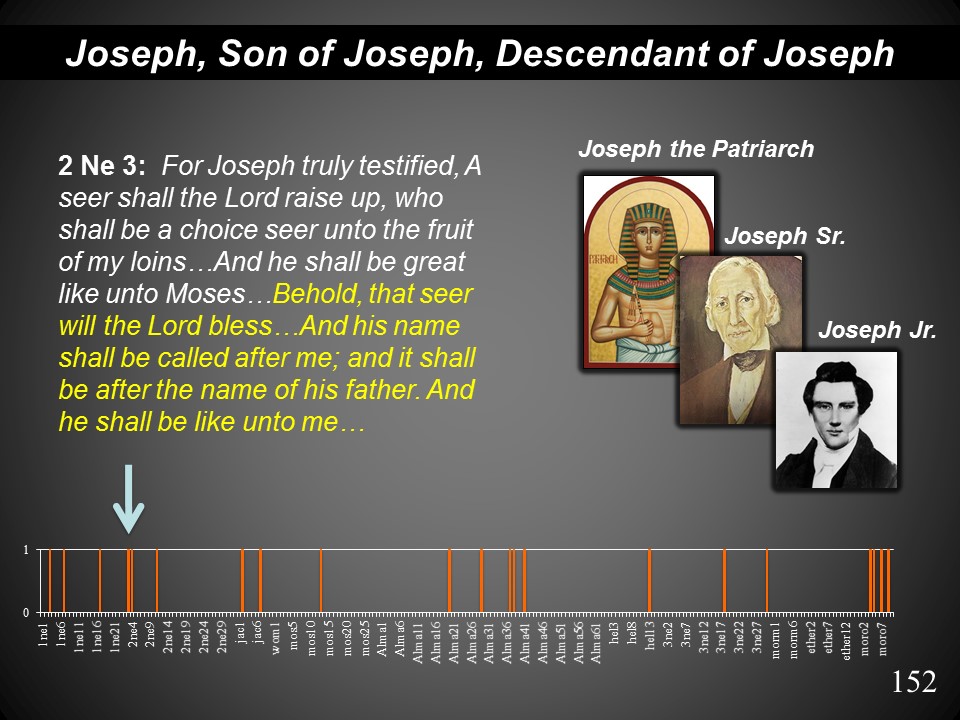According to D&C 100, Smith was to be the “Seer and Revelator”; Rigdon was to be the “Expounder.” In 1863, three Rigdonites (members of the small branch of Mormonism that followed Rigdon after Smith’s death) – Joseph H. Newton, William Richards, and William Stanley – wrote an “appeal to the latter Day Saints” – later referred to as “Ridgon’s appeal” because he was its likely “shadow author”. This document spells out Rigdon’s intended roles for Smith and himself: Smith was supposed to have been the Translator – the one who prepared the way for Rigdon. Rigdon was to have been Spokesman and Gatherer of Israel, the One to establish Zion and prepare the way for Jesus Christ. See: http://sidneyrigdon.com/books/Appl1863.htm
Of note is the following passage from page 27 of “Rigdon’s Appeal”: “The Lord had said, in the Book of Mormon, that he would raise up to Joseph Smith a spokesman; and the Spirit said, in the Book of Doctrine and Covenants, that Sidney Rigdon was that spokesman. The case then stands thus: Joseph Smith was to translate the Book of Mormon, and Sidney Rigdon was to take it, and gather Israel. Here is the sum of the whole matter. The prophet Malachi had said that before Christ came, he would send his messenger, and he should prepare the way before him. Joseph Smith said that Sidney Rigdon was that messenger. The Spirit said that the Lord would raise up a spokesman to Joseph Smith, and Joseph Smith said that Sidney was that spokesman. The Lord said he would prepare a priesthood with which he would gather Israel. Joseph Smith said that Sidney Rigdon held that priesthood.”
http://sidneyrigdon.com/books/Appl1863.htm
The Book of Mormon and The Doctrine and Covenants are consistent with the argument in Rigdon’s Appeal. Smith was to translate. Rigdon was to speak and expound the translations. Rigdon was to prepare the way for Christ’s second coming. In The Book of Mormon, Rigdon is referred to as “spokesman”. Says 2 Nephi 3:17-18: “And the Lord hath said, I will raise up a Moses [Joseph Smith]; and I will give power unto him in a rod; and I will give judgment unto him in writing. Yet I will not loose his tongue, that he shall speak much; for I will not make him mighty in speaking, but I will write unto him my law, by the finger of mine own hand; and I will make a spokesman for him. And the Lord said unto me also, I will raise up unto the fruit of thy loins, and I will make for him a spokesman. And I, behold, I will give unto him that he shall write the writing of the fruit of thy loins unto the fruit of thy loins; and the spokesman of thy loins shall declare it”. It is not clear how Smith would have had foreknowledge of a spokesman, as mentioned in the preceding passage, if Rigdon had no role in composing The Book of Mormon.
In 1864, Rigdon reiterated his intended relationship with Smith in Section 92 of the Post Collection: “Behold there were two revelators foretold in the book that should be raised up in order that all the work testified of in the book might be accomplished. One was called Revelator, translator &c. and the other spokesman. The revelator was to translate the record from the plates and the other to proclaim it to the house of Israel…””And in the ancient prophecies it was said of him that the Lord would give him the tongue of the learned. Such is the character that I the Lord your God present before you in the person of the head of the second dispensation under the ruling of the book of Mormon… ”
Rigdon was Smith’s “Revelator”, at least for The Book of Commandments. As such, Rigdon would have “revealed” scriptures that outlined his role as he anticipated it to be.
